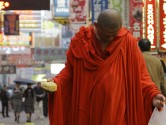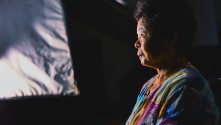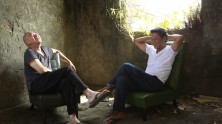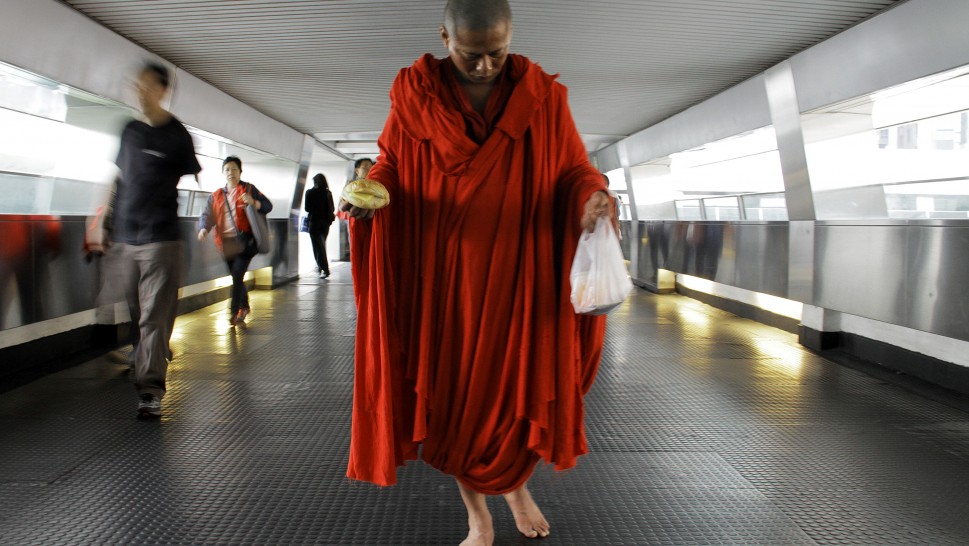
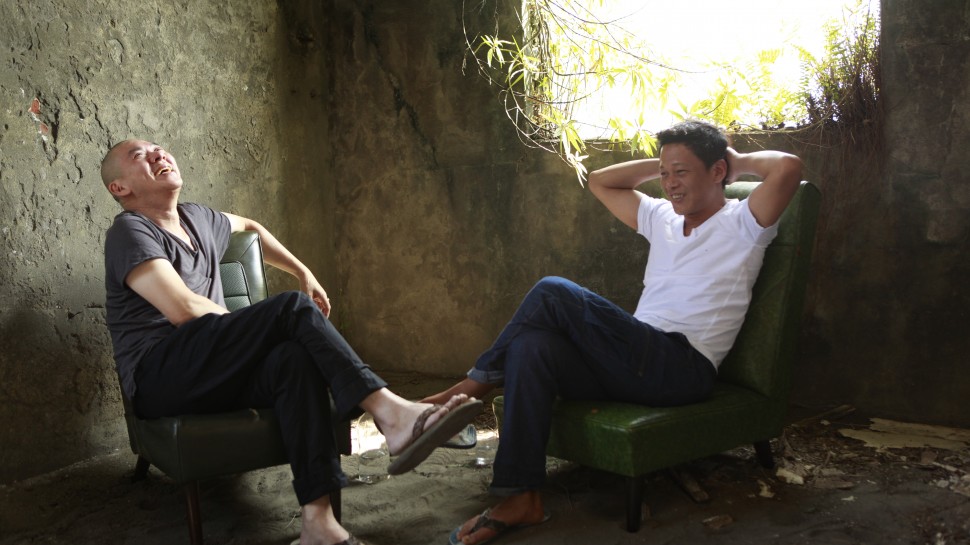
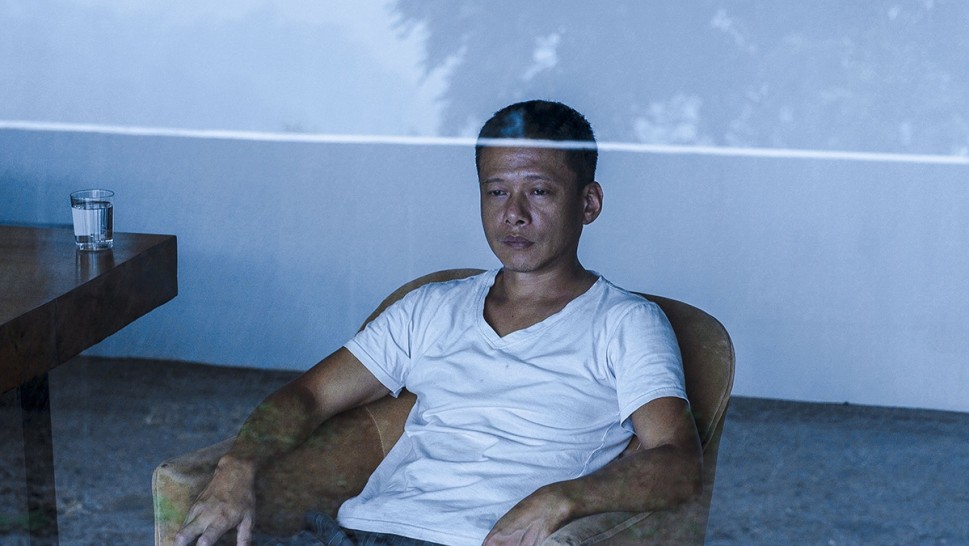
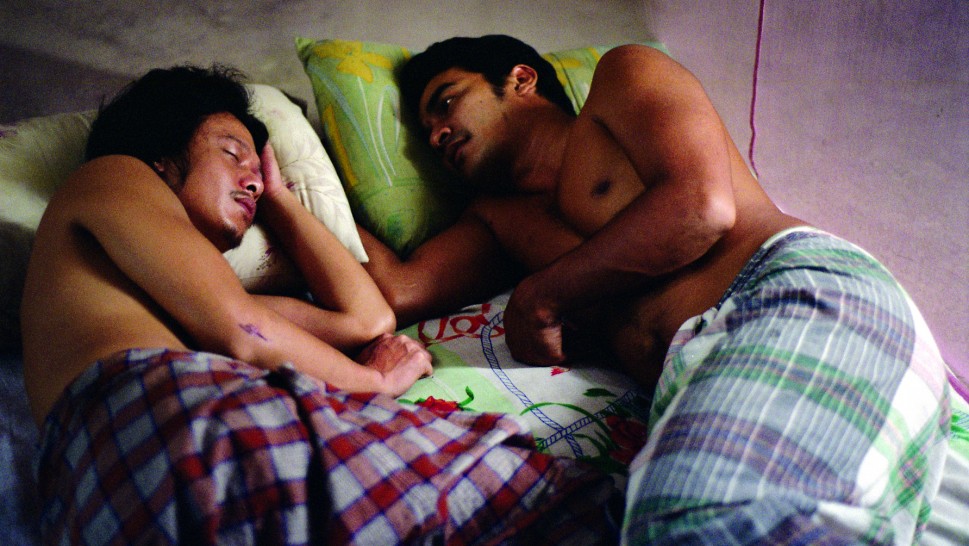
The Face of Time… Recent Films by Tsai Ming-liang
Rare and valuable is the filmmaker who expands one’s conception of the cinematic art; rarer still is the filmmaker who enlarges one’s notion of the term “director.” Malaysian-born, Taiwan-based auteur Tsai Ming-liang (b. 1957) accomplished the former with his rigorous, uncompromising and reputation-defining features of the nineties and early 2000s, and ever since his self-declared retirement from narrative filmmaking after 2013’s Stray Dogs, he has been anything but inactive while exploring the endless permutations of what it means to be an image maker in the 21st century. Among the many formally adventurous international filmmakers who have struck out for greener pastures in the past decade upon finding the commercial prospects of arthouse cinema distribution increasingly deficient, Tsai has dabbled in the gallery space, the black box theater, virtual reality and the independently run exhibition space as venues to both showcase his uncategorizable work and influence how he produces it. Along the way, he has transformed his very approach to capturing filmic material, and where once a pithy precis for his films existed—Antonioni-esque studies of alienated Taiwanese youth, for instance—there is no longer such a firm summary for exactly what a Tsai Ming-liang project looks like or how it operates.
The one unchanging throughline in Tsai’s cinema of transformation is Lee Kang-sheng, his muse of three decades. As Lee has aged, Tsai’s camera has become fixated on his leading man to a degree that transcends mere director-actor kinship. In 2014, in the throes of separate health issues, the duo absconded to a crumbling home in the mountains outside Taipei and have lived there ever since, a coexistence that has encouraged a documentary-like attention to the rituals of daily life and the painful processes of aging and illness. The critical darling Days (2020), which spends ample time chronicling the experimental treatments undergone by Lee for his ailing neck, represents the apotheosis of this newfound attentiveness, though a Buddhist appreciation for the present moment was coursing through his work long prior. In just the most conspicuous example of this tendency, Tsai was commissioned in 2012 by the Hong Kong International Film Festival Society to produce a series of short films for Youku, a Chinese video hosting service, and turned in the radically contemplative Walker films, which portray the languorous progression of a monk (a robe-clad Lee) through a frenetic modern world.
An identification with outlier social groups whose experience of reality is out of step with contemporary convention underpins much of Tsai’s work, extending from the migrant laborers wandering through a fog-shrouded Kuala Lumpur in I Don’t Want to Sleep Alone (2006) to the homeless family in Stray Dogs, whose patriarch (Lee again) yearns for an escape from a miserly existence as a sandwich man. The issue of poverty returns habitually, and yet Tsai’s approach skirts didacticism and socioeconomic specificities in favor of experiential immersion. By focusing on characters in dire straits, his films magnify the gravitas of time passing, the direct effect of environmental conditions on the body and the soul, and the fleeting bits of pleasure to be found within everyday drudgery. Time and time again, Lee has been the vessel through which these interests have flowed, though in recent years Tsai has pivoted from molding his perennial lead into new and unexpected character forms to appreciating his unembellished corporeality as a subject in and of itself—infinitely complex and ever-changing.
This curiosity for Lee himself, which has birthed such openly reverent projects as Days and Afternoon (2015), seems unlikely to ever cease for Tsai, and yet it hasn’t shielded him from finding sufficiently cinematic material elsewhere in his daily life. Not to be confused with his earlier Face (2009), an artifact from a more flamboyant era of Tsai’s filmmaking that now seems preserved in amber, Your Face (2018) is a Warholian meditation on anonymous elderly faces that Tsai recruited from street casting, while Light (2019) observes an empty auditorium as afternoon sunshine penetrates the dark interior. In both cases, Tsai’s formal impositions are minimal, and the mere recording of reality—coupled with the filmmaker’s usual compositional prowess—proves worthy of sustained attention.
But is this directing as we know it? “This idea of ‘depositing images’ is the result of the change in my concept of what it means to be a director,” Tsai told Devika Girish of Film Comment in 2021. “To paint something that you’re moved by, that’s your creative outlet. When you finish that painting, you don’t feel like you need to show it to everybody right away. I think by capturing images in the same way, you can capture reality.” The films in this program offer testament to this ostensibly simple mission, which proves itself in year after year of Tsai’s meandering career to be capable of producing rich and unanticipated rewards. – Carson Lund
The Harvard Film Archive is delighted to welcome not only Tsai Ming-liang to the theater for two evenings of films and conversation, but also his longtime collaborator Lee Kang-sheng in addition to Lee's Days costar Anong Houngheuangsy, and producer Claude Wang.



